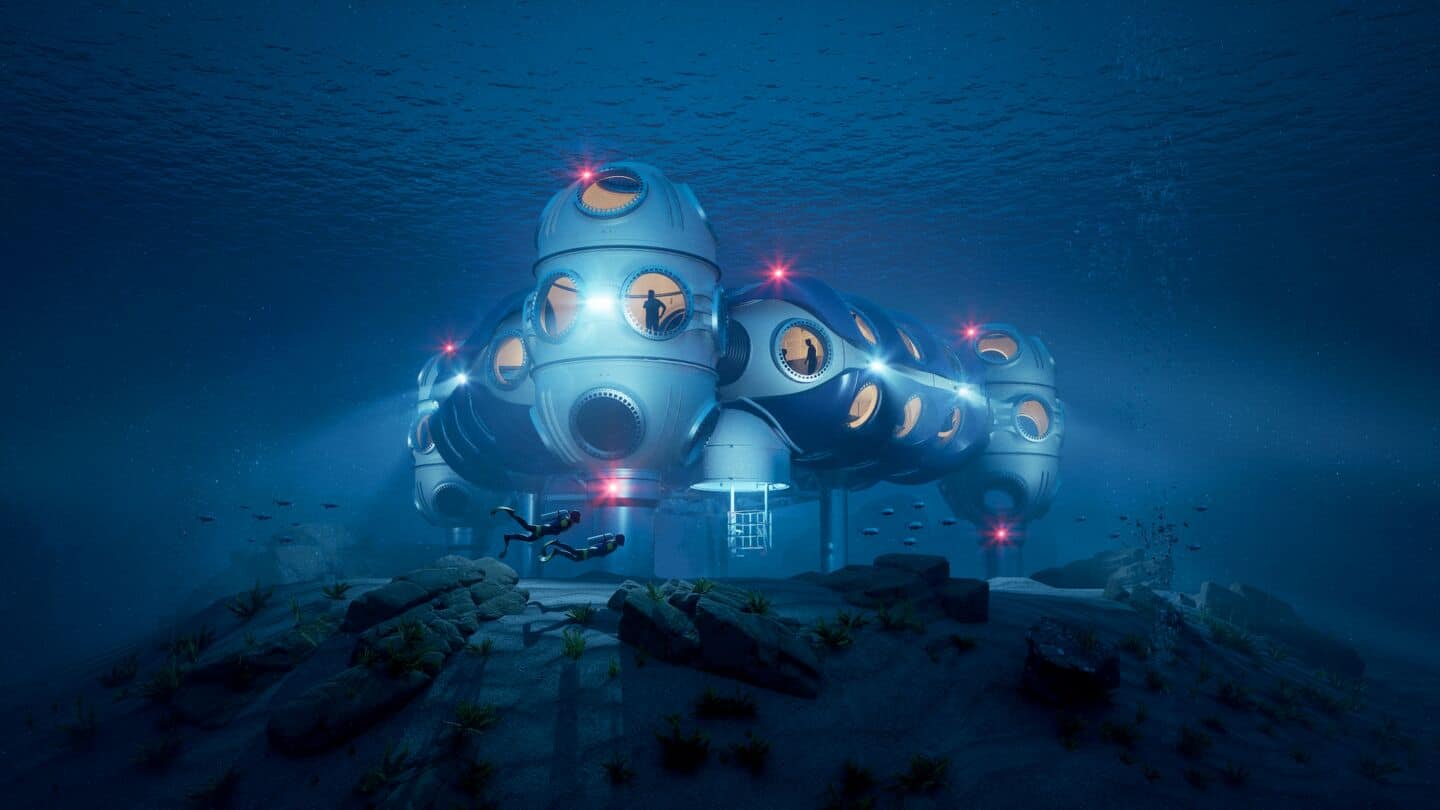
Humans could live underwater permanently by 2027, says UK startup
What's the story
A United Kingdom-based startup, DEEP, is leading the charge to create a permanent human settlement on the ocean floor by 2027.
The company's president, Sean Wolpert, hopes to replicate SpaceX's transformative impact on space exploration.
"What we want to do is have the same impact that SpaceX had on making space sexy once again," he told Euronews.
"The one area where we felt there was a large disconnect...was between humanity and the ocean," he said.
Project details
DEEP's ambitious underwater habitation plans
DEEP plans to use wire-arc additive manufacturing, a technique to 3D print habitats from metal wire, to withstand oceanic pressure.
Their first underwater habitat, "Vanguard," is expected to be completed by the end of this year.
Vanguard will be a compact, mobile settlement specifically designed for short-term missions like training and recovery.
The company also plans to develop larger structures called "Sentinels" for extended undersea missions.
Future plans
Sentinel habitats: A glimpse into our underwater future
The first Vanguard habitat will be 27.87m2 in area and can host three professional divers up to around 100m deep, fully in the ocean's "sunlight zone" for short-term missions.
In comparison, Sentinels will accommodate six people and feature facilities like a kitchen, scientific lab, and a flushing toilet for longer missions of up to 28 days.
They will bear increased oceanic pressure while keeping inhabitants comfortable.
Living conditions
Challenges and considerations in underwater living
However, one of the major concerns is the health risks associated with long-term underwater habitation due to higher pressure and air density.
Joseph Dituri, an associate professor at University of South Florida, aka "Dr. Deep Sea," holds the Guinness World Record for living underwater for 100 days.
Dituri's mental and physical health was rigorously monitored throughout this time, and when he resurfaced, he reported increased REM sleep, decreased cholesterol, temporary extreme near-sightedness, and a bodily shrinkage by half an inch.
Environmental concerns
Ecological impact and future prospects
The ecological impact of human settlements on the ocean is another major concern.
DEEP's plan to study 90% of sea life in the sunlight zone could potentially disrupt existing habitats.
Despite these challenges, DEEP remains committed to its vision for underwater living.
By 2035, the company aims to have 10 multi-span developments globally, with plans for humanity's first underwater birth by 2050.